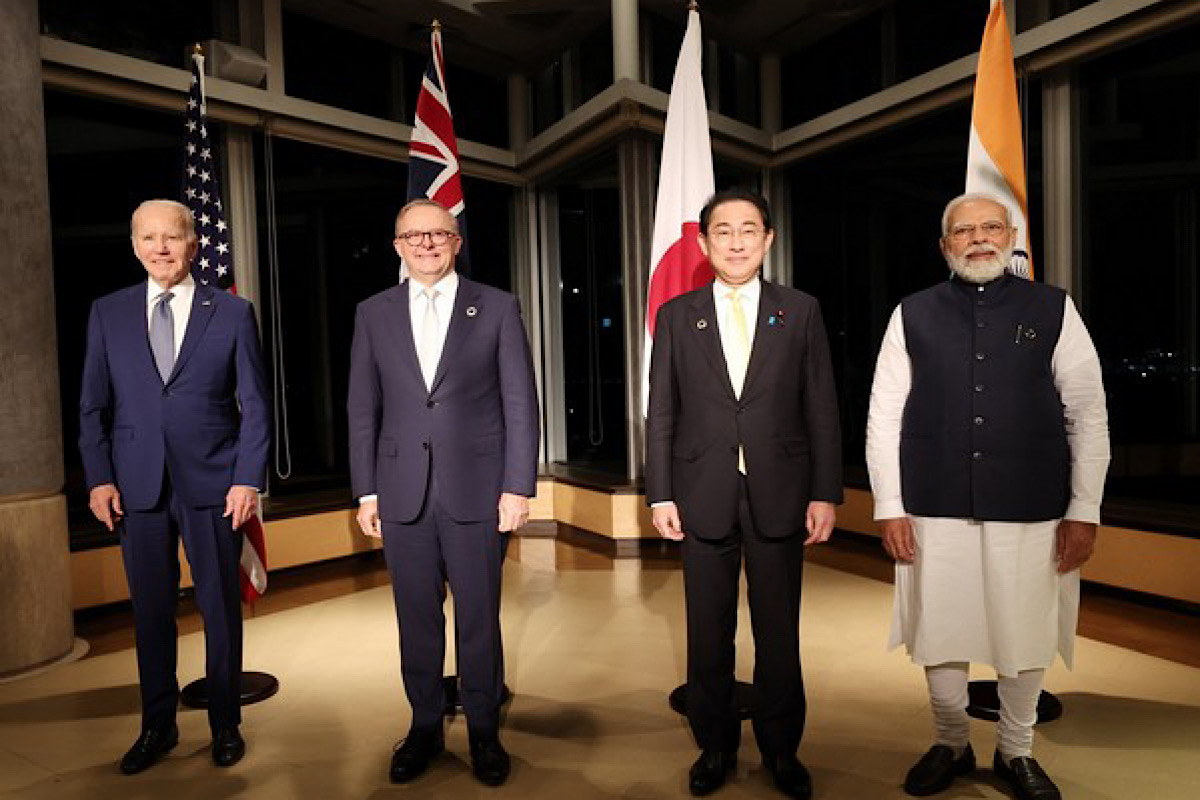PM Modi meets US President Donald Trump at White House
Prime Minister Narendra Modi met US President Donald Trump here on Thursday. It is the first meeting between the two leaders in the second term of President Trump.

Prime Minister Narendra Modi met US President Donald Trump here on Thursday. It is the first meeting between the two leaders in the second term of President Trump.

External Affairs Minister S Jaishankar and his counterparts from the other three QUAD nations reaffirmed their shared commitment to strengthening a free and open Indo-Pacific where "sovereignty and territorial integrity are upheld and defended."

In a social media post on 'X' marking the 20th anniversary of Quad, External Affairs Minister S Jaishankar on Tuesday said the four-nation grouping now stands as a vital force for stability, progress and prosperity in the Indo-Pacific.

The Quad (Quadrilateral Security Dialogue) is a grouping of four Indo-Pacific nations, US, Japan, Australia and India. Its fourth inperson Quad leaders’ summit was hosted by President Joe Biden in Wilmington, Delaware, recently.

''The Ministers will take forward discussions held during the last meeting in New York in September 2023 and exchange views on developments in the Indo-Pacific region, and review progress on Quad initiatives and working groups,'' the Ministry of External Affairs (MEA) said.
The 2022 Peace Research Institute Oslo (PRIO) annual conflict study reported that in 2021, 54 state-based conflicts occurred in 35 countries, with nearly 85,000 battle-related deaths.
On September 23, the foreign ministers of Australia, India and Japan and the Secretary of State of the United States held a meeting in New York.
"India will likely be a growing destination market for goods from fellow Quad countries, while the US and Japan will continue to be major sources of foreign direct investment in India's services, telecommunications and software sectors," said Moody's Investor Service.
For, the overlap of multilateral alliances in the region which has come to the fore could well turn out to be counter-productive as critics have been warning for a while now.
The virtual meeting will be held between India’s Prime Minister Mr. Narendra Modi, US President Joe Biden, Israel's Prime Minister Naftali Bennet, and UAE`s President Mohammed bin Zayed Al Nahyan.